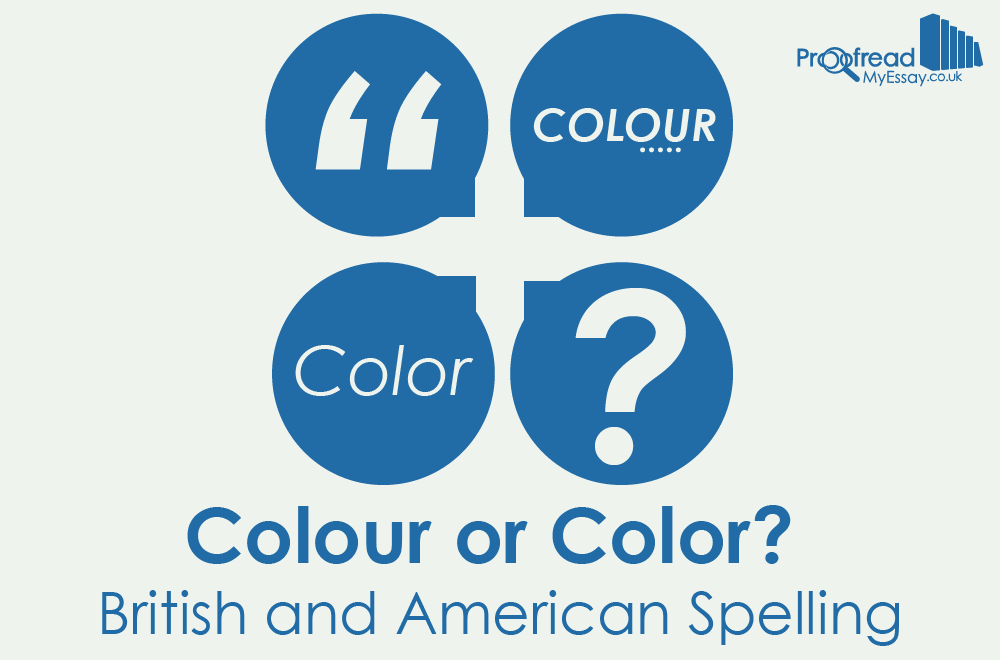George Bernard Shaw once remarked that ‘England and America are two countries separated by a common language’. However, as well as ignoring the Atlantic Ocean, Shaw’s proclamation overlooks the many differences between British and American spelling.
Here though, we’ll look at the systematic ways in which British and American English diverge, as you’ll need to know these if writing for an international audience.
-our vs. -or
Words we spell with an ‘-our’ in the UK are often simplified in American English, which tends to drop the ‘u’.
|
UK Spelling |
US Spelling |
|
Humour |
Humor |
|
Colour |
Color |
|
Favourite |
Favorite |
-re vs. -er
When an English word ends in ‘-re’, American English reverses this to make the spelling consistent with other English words that end with an ‘-er’ sound.
|
UK Spelling |
US Spelling |
|
Centre |
Center |
|
Theatre |
Theater |
|
Manoeuvre |
Maneuver |
-ae/-oe/-oeu vs. -a/-o/-eu
As with ‘manoeuvre/maneuver’ in the table above, American English also simplifies vowel combinations in some words.
|
UK Spelling |
US Spelling |
|
Paediatric |
Pediatric |
|
Oestrogen |
Estrogen |
|
Manoeuvre |
Maneuver |
-se vs. -ze
One of the most common spelling differences between UK and US English is that many American words take a ‘z’ where the British versions can use either ‘s’ or ‘z’.
|
UK Spelling |
US Spelling |
|
Organise/Organize |
Organize |
|
Recognise/Recognise |
Recognize |
|
Apologise/Apologize |
Apologize |
These variations also apply to modifications of these words, so British English accepts both ‘organisation’ and ‘organization’, while American English only uses ‘organization’.
Find this useful?
Subscribe to our newsletter and get writing tips from our editors straight to your inbox.
Some people claim that using a ‘z’ in these words is only acceptable in American English, but either version is fine as long as you apply consistent spelling throughout.
The one significant exception is when the word is spelled with a ‘-yse’, such as ‘catalyse’ and ‘analyse’; these terms can only be spelt with an ‘s’ in British English, but always take a ‘z’ in American English (e.g. ‘analyze’ and ‘catalyze’).
-ogue vs. -og
Another simplification, as American spellings lose the ‘-ue’ from words that end in ‘-ogue’.
|
UK Spelling |
US Spelling |
|
Dialogue |
Dialog |
|
Analogue |
Analog |
|
Catalogue |
Catalog |
-ence vs. -ense
Many words spelled with a soft ‘c’ in British English take an ‘s’ in American English.
|
UK Spelling |
US Spelling |
|
Defence |
Defense |
|
Offence |
Offense |
|
Pretence |
Pretense |
However, it’s worth noting that the adjectival forms of these words are spelled with an ‘s’ in both UK and US English (e.g. ‘defensive’, ‘offensive’).
Keep in mind, too, that UK terms which differ in spelling when used as either a noun or an adjective (e.g. ‘practice/practise’) often use a single spelling for both forms in US English (so ‘practice’ is both the noun and verb in America).



